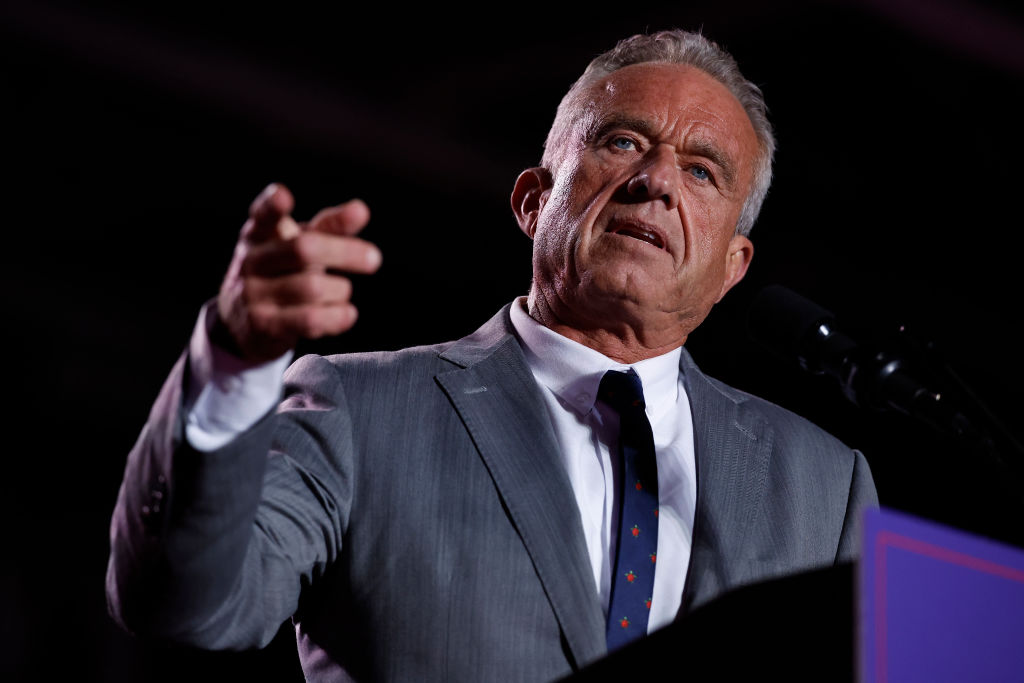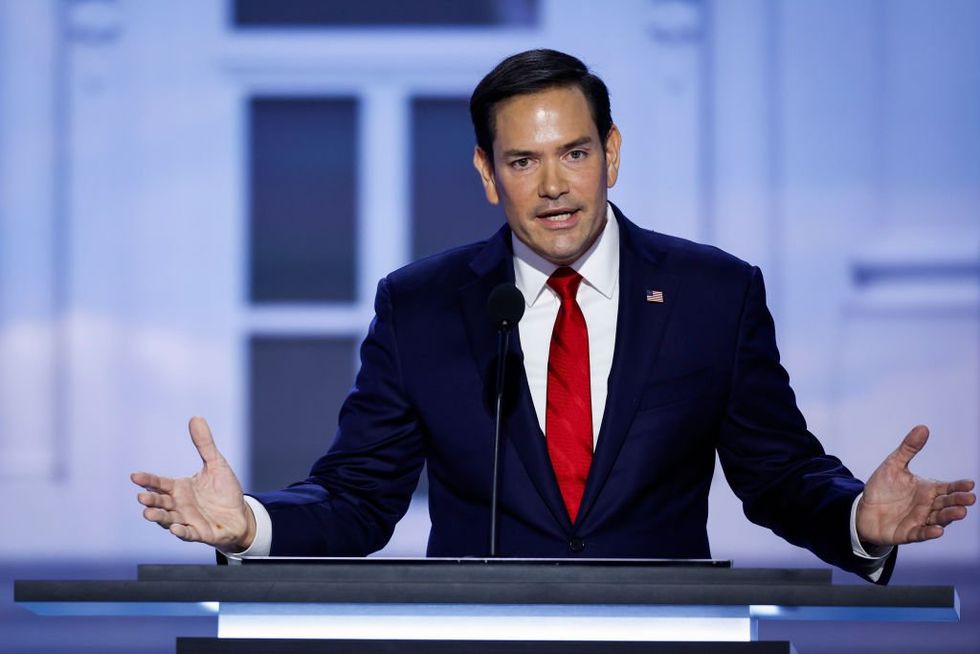RFK Jr. Could Do What Michelle Obama Actually Promised: Healthy Lunches For Low Income Students
On February 9, 2010, Michelle Obama unveiled her ambitious initiative to combat childhood obesity through her “Let’s Move!” campaign, aiming to empower children and reduce obesity rates. The CDC reports that 1 in 5 children in the U.S. suffer from obesity which prompted President Obama to pass the Healthy, Hunger-Free Kids Act of 2010. This ...

On February 9, 2010, Michelle Obama unveiled her ambitious initiative to combat childhood obesity through her “Let’s Move!” campaign, aiming to empower children and reduce obesity rates. The CDC reports that 1 in 5 children in the U.S. suffer from obesity which prompted President Obama to pass the Healthy, Hunger-Free Kids Act of 2010. This law aimed to promote healthier diets with mandated minimum servings of fruits, vegetables, and whole grains while limiting sugar, fat, and sodium. However, the program fell short of its goals and inadvertently exacerbated the problems it sought to address.
The focus of her campaign was not only to ensure that our nation’s children are being fed but also fed healthy food through the aid of the government. This could have only been a good thing until reality proved otherwise.
Within the first few years of this initiative, participation in school lunch programs across the nation fell dramatically. The United States Government Accountability Office (GAO) reports that nationwide participation in the National School Lunch Program declined by 1.4 million.
Children’s decrease in participation coincided with rising lunch prices aiming to comply with new “health” standards set by the First Lady, which mandated minimum fruit, vegetable, and whole grain servings, as well as set a maximum for sodium, sugar, and fat contents.
This centralization of our children’s diets drastically harmed low-income communities. Many low-income schools faced budget shortfalls, with some completely dropping out of the federal program. Ironically, this initiative reduced access to meals for the very same children the initiative sought to help.
Michelle Obama’s “one-size-fits-all” approach to children’s diets, also did not account for dietary preferences or individual school needs. Thus, children were actively choosing not to eat the meals provided for them, calling them “gross” and posting pictures of their so-called nutritious and balanced meals with the hashtag #thanksmichelleobama.
However, Michelle Obama was right: the quality and nutritional value of lunches can change and affect the current rates of childhood obesity. Unfortunately, her approach completely failed to address the real problem at hand: public health giants and their monopoly on the United States agrifood system.
The National Institute of Health (NIH) recently conducted a study on the correlation between childhood obesity and low-income areas. Scientists found that adolescents residing in areas of low income had a greater than 50% higher risk of obesity. This statistic is the complete opposite when it comes to a majority of marginalized countries. So why does one of the wealthiest nations on the planet have the most significant rates of obesity?
Low-income communities in the United States are consuming more ultra-processed foods now than ever before. Why? Because processed foods are often cheaper than fresh produce and they are made and marketed for convenience. Mass consumption of ultra-processed foods leads to a higher risk of health dangers and diseases due to high calorific content and low nutritional value.
Students weren’t getting enough nutrition as it was and Michelle Obama’s school lunch program inadvertently replaced the traditional high-calorie, low-nutritional meals with a different form of processed foods. This change posed a significant issue for low-income students who depended on these meals, as the new options were often unappealing and failed to meet their dietary needs from the start.
This systemic problem is at the heart of Robert F. Kennedy Jr.’s “Make America Healthy Again” movement. RFK’s bid is to fix the American agricultural system and that begins with cleaning up public health agencies like the FDA and USDA claiming, “[t]hose agencies have become sock puppets for the industries they’re supposed to regulate” in a recent video. It has become abundantly clear that these agencies are solely operating for monetary gain, not for the people of America.
CHECK OUT THE DAILY WIRE HOLIDAY GIFT GUIDE
In a Fox & Friends interview, RFK was asked what he would do to improve school lunches, and to that, he responded immediately: “I’ll get processed food out of lunches immediately. About half the school lunch program goes to processed food….We’re creating a diabetes problem in our kids, by giving them food that is poison and I’m going to stop that.”
The “Make America Healthy Again” pledge to get toxic chemicals out of the food supply addresses the real problem the way Michelle Obama never could. Rather than just treating symptoms of obesity, RFK’s plans to reform America’s agricultural policies, agencies, thereby addressing the systemic failures in our food system.
To truly combat obesity in America, we must prioritize the quality of our food. By addressing systemic failures and reforming the food supply chain, initiatives like RFK Jr.’s offer a more sustainable and realistic path to a healthier nation.
* * *
Dr. Naydeen González-De Jesús is a former college president and former U.S. public diplomacy officer who has championed student success and international collaboration. Her initiatives and contributions to the U.S.-Argentina Education Memorandum during the 2018 G20 Summit, have driven economic mobility, educational advancement, and strengthened bilateral relations.
The views expressed in this piece are those of the author and do not necessarily represent those of the Daily Wire.
Originally Published at Daily Wire, World Net Daily, or The Blaze
What's Your Reaction?

































































































